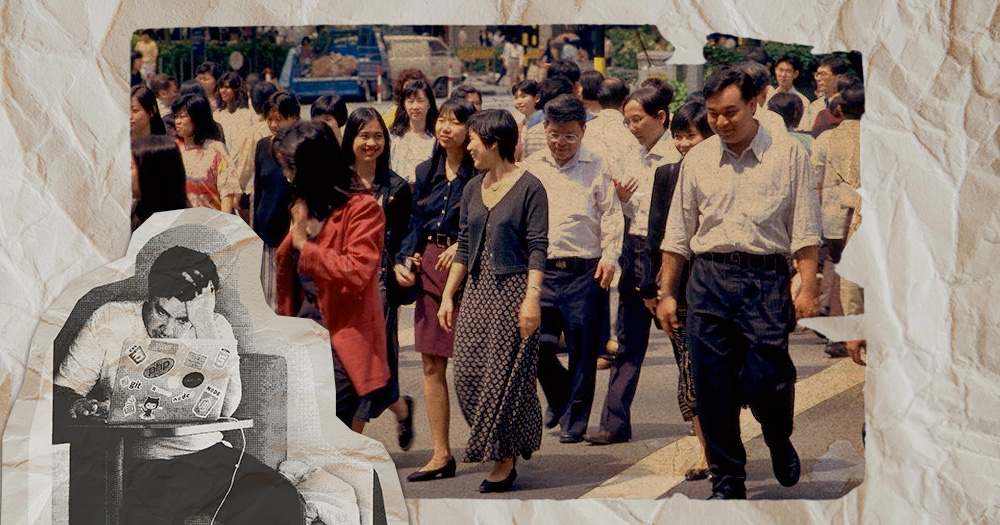Follow us on Telegram for the latest updates: https://t.me/mothershipsg
We Singaporeans are a stressed bunch.
Having worked hard (FYI boss) Monday to Friday, weekends usually feel like they pass like this:
 Too fast, too furious. Via Reddit
Too fast, too furious. Via Reddit
In August, a TikTok video went viral after one Singaporean shared that he much prefers to work in Malaysia than in Singapore, and explained that he is better able to spend time with his wife and kids there.
In the video, he acknowledged that those who work in Singapore tend to earn higher salaries (which then translate to even higher spending power in Malaysia, thanks to currency conversion), but pointed out that it comes with a higher cost of living and a hurried pace of life that takes away from benefits of better pay.
“The difference that I see is hence life”, he added.
While his friend in Malaysia often gets to spend time with his family and friends, another friend in Singapore can sometimes get so busy that he cannot even meet his kid for the week. He shared:
“[So] I pick Malaysia because opportunities are everywhere. There's less stress here in Malaysia, and the most important thing is the life that I want, with my kids and my friends.
That's the best thing."
The history of the 5-day work week
That Singaporean's perspective is rare, but understandable, considering that we do work hard.
In fact, working long hours can even be said to be a time-honoured Singapore tradition.
Having oftentimes worked on the weekend and past the necessary weekday office hours myself (FYI again, boss), I sometimes find myself drifting on autopilot, having drained my energy for the sake of hitting KPIs.
Personally, it’s not the most sustainable way to live, but as I read more on the topic, I found that the work week for the average Singaporean has actually gotten better over time.
Pre-2000s, many Singaporeans used to work 5.5-day work weeks, which meant, yes, having to work for half of every Saturday.
Working on Saturdays was usually a more casual affair, with folks who were headed into the office dressing down.
Employees could then head home after work ended at around 1pm.
According to Petir.sg, the five-day work week was introduced for the civil service in 2004, and slowly but surely, this “laid the foundation” for all other employees in Singapore to enjoy the two-day weekend many of us are now familiar with.
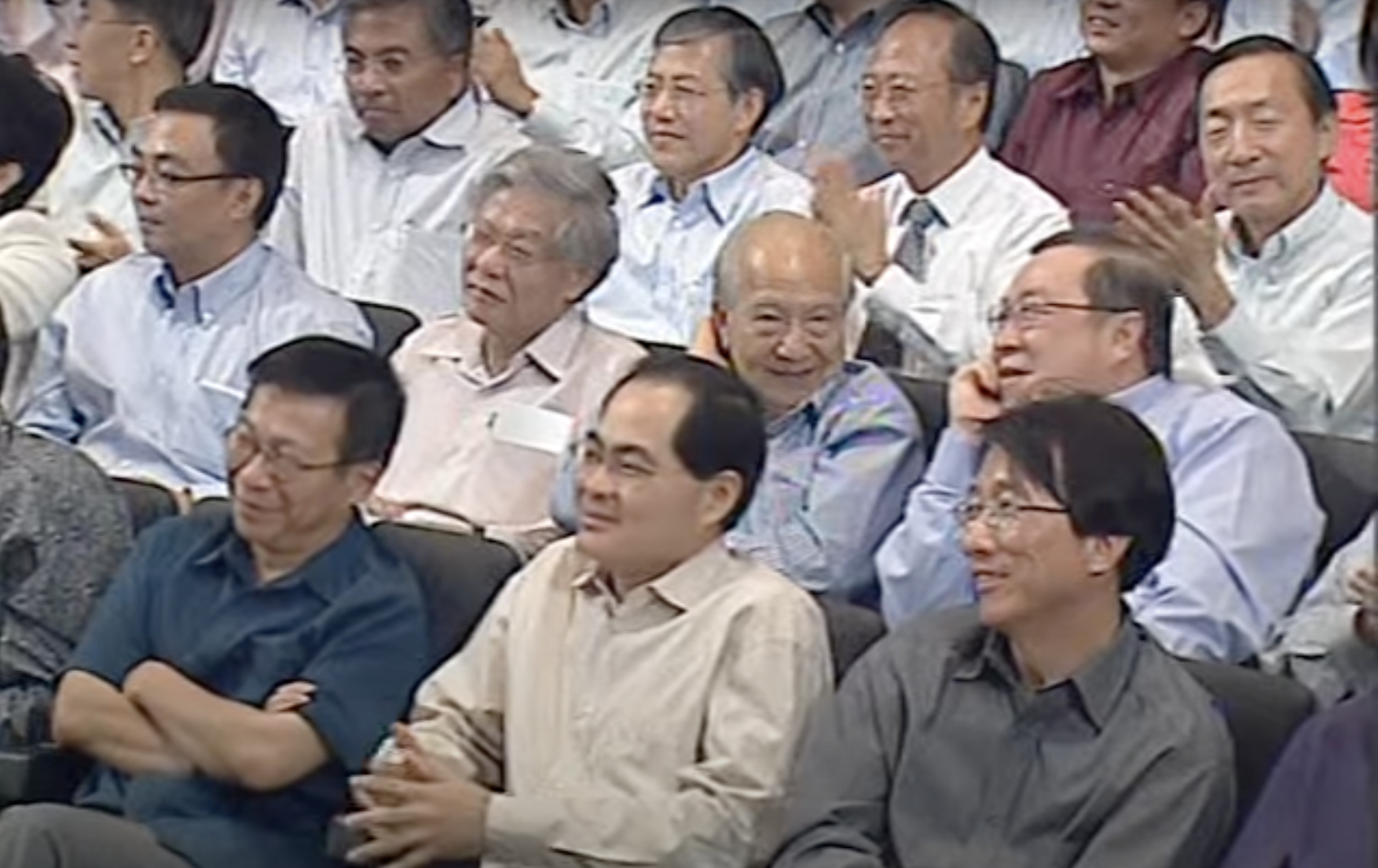
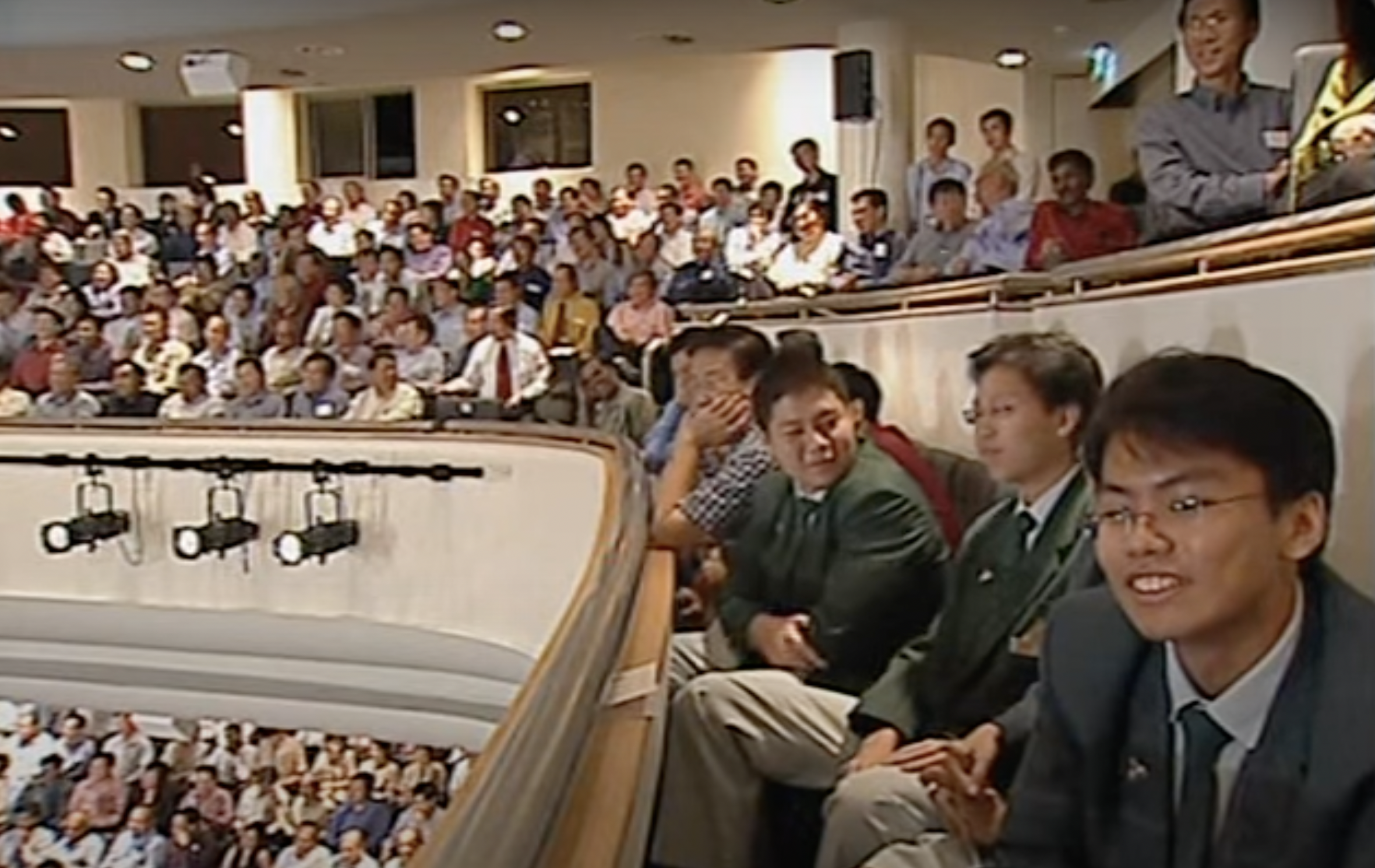 Screenshots of reactions from those in the audience immediately after Prime Minister Lee Hsien Loong announced the change to a five-day work week in his 2004 National Day Rally speech. Via PMO Singapore YouTube.
Screenshots of reactions from those in the audience immediately after Prime Minister Lee Hsien Loong announced the change to a five-day work week in his 2004 National Day Rally speech. Via PMO Singapore YouTube.
Today, the “normal hours of work” has been defined by the Ministry of Manpower to be up to nine hours a day, or 44 hours a week if one works a five-day work week, and anything beyond that means employees may be eligible for overtime pay.
“Of course, we were happy that she did not need to go into the office on Saturdays," shared Bryan a 57-year-old relative of mine whose wife was a civil servant in the early 2000s.
"We had more time for ourselves on the weekend.”
The 5.5-day work week did continue for certain jobs and industries, such as polyclinics and banks.
But for most others, the change was seen as beneficial. It had been a long time coming.
“Most office workers just had to rearrange their schedules," Bryan added.
"I don’t think it was very different, just that the weekdays become more cramped as you’re adding on about an hour’s work each day.
I think it was better. Because on the weekends you can do whatever you want, and it’s nice having that autonomy and personal time.”
Why some Singaporeans still find it hard to relax
Except that in 2022, the perennial problem of the proverbial rat race still stands, and many Singaporeans continue running it as we see others chase this ideal as well.
We may have a shorter work week than we did 20 years ago, but many of us still can't seem to catch a break.
According to a recent study by The Instant Group, Singapore is the most overworked country in the APAC region, and we have the longest working hours per week.
The study also found that 73 per cent of Singaporeans feel unhappy, and 62 per cent feel burnt out.
Although the average total paid hours worked per employee per week has already decreased over the past decade (from 46 hours in 2012 to 44 hours in 2022), a culture of overwork persists.
I would know, as I’m voluntarily writing these very words after hours on a weekday night.
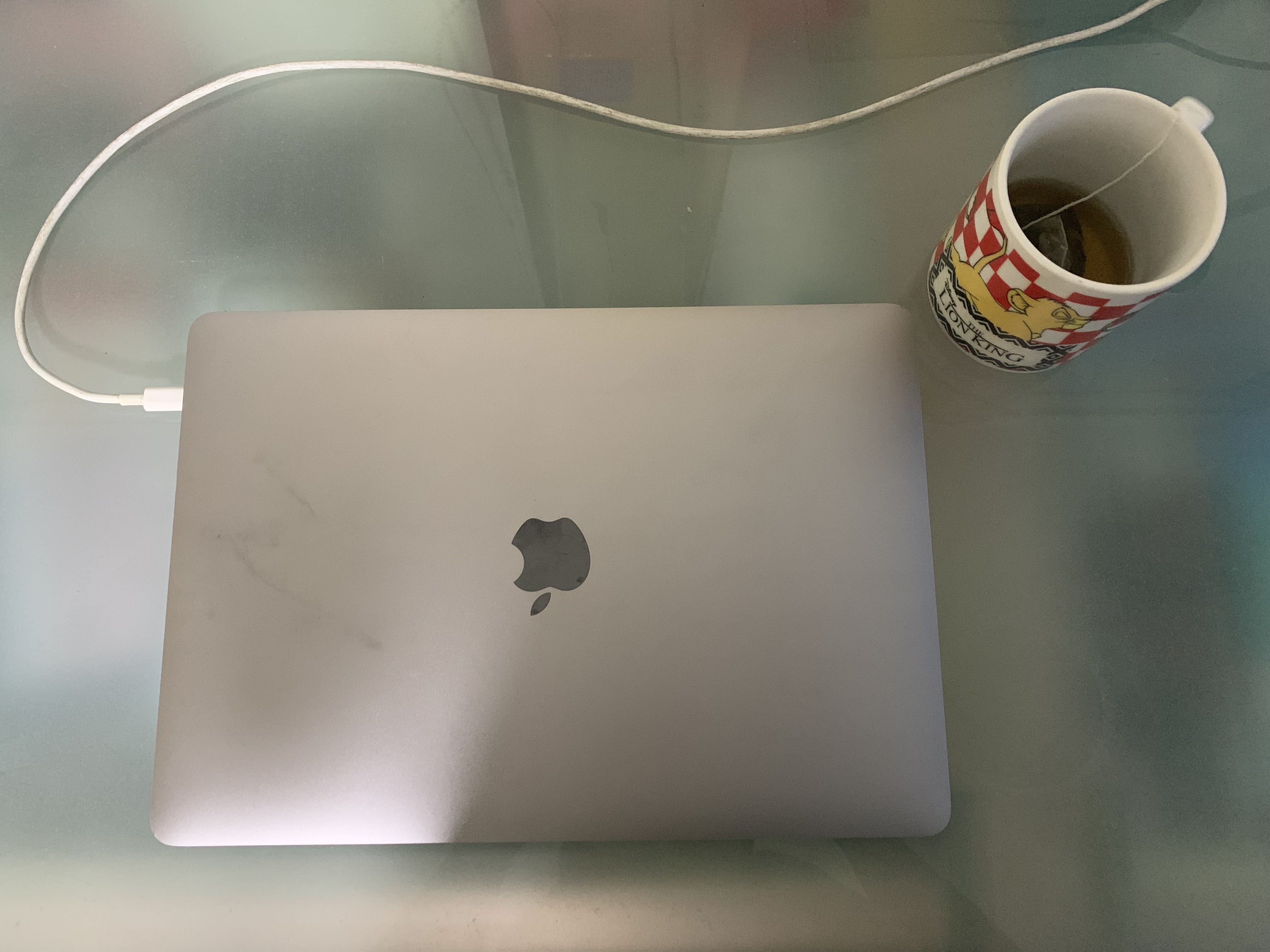 Burning the midnight oil, a throwback to student days.
Burning the midnight oil, a throwback to student days.
Tracie Lazaroo, a clinical psychologist at Inner Light Psychological Services, suggests that the reason why Singaporeans like myself find it hard to relax could come down to identity:
“In a fast paced, developed society like Singapore, we often tag our identity and self-worth to being productive. Our idea of success is related to how productive we are.”
There is also an element of "Fear of Missing Out" (FOMO) and "wanting to get more money", together with a perceived need to compete and be successful, shares Lazaroo.
 i.e. climbing the corporate ladder. Via LinkedIn website
i.e. climbing the corporate ladder. Via LinkedIn website
This is because Singapore is a highly competitive society where “external validation and financial success are valued”, she explains.
Also, working hard might seem all the more necessary as Singapore’s cost of living rises.
On the other hand, Singaporeans just generally have a strong work ethic. Lazaroo elaborates:
“We believe that hard work implies success, well-being and financial stability. We want to do well and be successful in every single facet of our life.”
This need to excel is further amplified by a “general timeline” to remain competitive and relevant.
For younger Singaporeans, there's pressure to reach various life milestones like graduating from school, having a job that pays a certain amount, or owning a flat and settling down, all while one is within a certain socially-accepted age range.
There's also an expectation to advance one's career and income level, along with age.
Shares Lazaroo: “These societal pressures are understandable, given that people are Singapore’s primary resource.”
But they also “subconsciously influence our behaviours and attitudes towards work”, and can lead to “burnout and feelings of perceived inadequacy” if not managed, she says.
How WFH changed work culture forever
As someone who finds it hard to detach from work responsibilities, Covid-19 also further blurred work-life boundaries for me.
I found it easier to work overtime – If I forgot something on my to-do list, I could walk from my bed to my laptop, and finish it there and then.
After hybrid work arrangements resumed, I found that this habit continued, even on some office days. (Yes, I know it’s not healthy, but what can I do?)
However, it appears I’m not alone in this, as in a 2021 Randstad survey, about one-third of Singapore respondents reported feeling more stressed since the onset of the pandemic, and expressed a keenness to change the way they work.
Three in five respondents also reported that they had “reassessed” the need for work-life balance during the pandemic, with mental health and work-life balance growing to become major priorities.
According to a follow-up Randstad survey in 2022, about 94 per cent of respondents maintained that work-life balance is important.
77 per cent of respondents also shared that they would prefer the option to work remotely, while 80 per cent indicated a preference for flexible working hours.
Despite how the WFH model has blurred work-life boundaries, it appears that employees in Singapore do still enjoy working from home for the flexibility and autonomy it offers, not to mention the savings on expenses and travel time.
About 41 per cent of Singapore workers also said they would rather be unemployed than feel unhappy in their jobs.
Put together, these statistics seem to point to a trend that favours “meaningful careers” and having the time to enjoy life, beyond just working to make ends meet.
It's no wonder that one of the TikTok trends that has gotten some traction here focuses on enjoying experiences in one's youth, as there'll be time to earn back the money in the future.
@boogiewondertoks Sorry not sorry to the couple on a date behind me 🤪 #abba #dancingqueen #sgtiktok #tiktokph #moneywillreturn #tiktoksg #fyp #viral ♬ Dancing Queen - ABBA
Clearly, something's happened in Singapore for this sort of carpe diem sentiment to be recognised and accepted, perhaps even encouraged.
Bryan, who worked in the manufacturing industry in the 1980s, and is now a manager in a global pharmaceutical company, opines on how Singapore’s work culture has changed:
“We’ve grown from a developing country to a developed one. We now have more options to choose from, and the job nature is also very different.
So of course it’s different, and got different priorities."
While working overtime might have been seen by some as the only way to earn more money in the past, this is a less common way of thinking now.
Bryan also points out that starting pay for many jobs is higher these days, allowing people to pursue other non-financial motivations in their work, such as work-life balance, flexible hours, or remote work opportunities.
Can Singaporeans ever relax?
In the early 2000s, there was a change in how we looked at work.
In his 2004 National Day Rally speech, Prime Minister Lee Hsien Loong shared his hope that the 5-day work week initiative would lead to a “better work-life balance” for Singaporeans, and contribute to a “reordering of priorities” towards marriage, family, and children.
Today, there's a sense that the work system and how we think about work needs to change once again.
But other than wait for change, what else can the average Singaporean worker do, if not to work from nine to five (and never relax) until we die retire?
Sarah Rodriguez, 33, who heads the marketing and public relations team at local urban farm Edible Garden City, offers some inspiration.
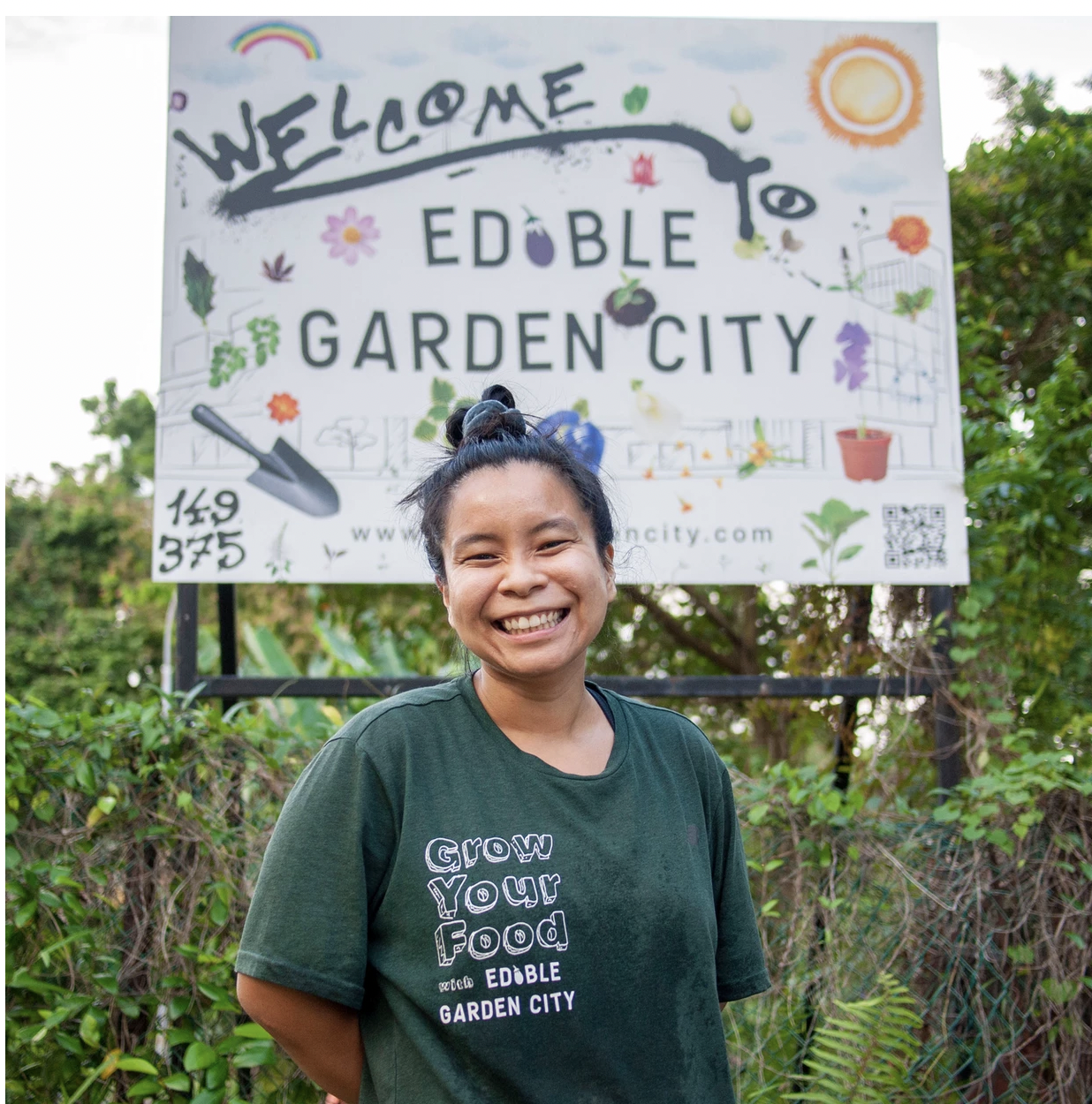 Via Edible Garden City website
Via Edible Garden City website
In 2018, Rodriguez quit her job in the Singapore civil service to become a farmer.
The career change is something she talks about with pride.
But it came at the cost of a 90 per cent pay cut, with her starting pay hovering at around S$500 for the first three months in her new job, though it's since increased to a comfortable level.
Rodriguez tells me she had left her previous job as she felt “really restless”, and needed to do something “not desk-bound”:
“It was almost like I felt the call of the wind. I had wanted to go farming in Japan since my university days as well, so I also saw the move as a ‘it’s now or never’ moment.”
While the move was a leap of faith, it was not all on a whim.
Rodriguez elaborates that before she left for Japan for about two weeks, she had started volunteering with local farm Edible Garden City every day, to get a taste of what farming life was like.
She also began saving up for about six months before she quit, so the shift was “not so extreme”.
After she returned from Japan, Edible Garden City then offered her a full-time apprenticeship.
While she did experience fears and concerns about “losing out” to her peers in terms of financial stability, Rodriguez shares that the fear had only been modest at worst.
The sting of the pay cut was managed mostly through changing her lifestyle habits and cutting down on excesses, including “no shopping, and having the occasional restaurant meal only”.
Rodriguez explains that the shift was thus “totally doable”:
“A lot of the stuff I used to spend money on, I actually didn’t need. It was just fodder, and really not that important.”
Rodriguez’s friends and parents were also very supportive of her job change, and would suggest hanging out at home or at more affordable places so she “never felt any FOMO”.
And although her finances are now tighter, Rodriguez shares that her job now is also less “xiong” (less "intense"), and is something she enjoys more. She shares candidly:
“I do sometimes think, especially as a new mom, that things would be so much easier if I were still at my old job," she shared candidly.
"I wouldn’t have to scour for discounts, or worry about racking up costs for taking a taxi with my baby.
But professionally, I do think I have learned a great amount being in this industry at this time.
I enjoy my work as it is more varied and there is greater autonomy over what I do. I value that a lot.”
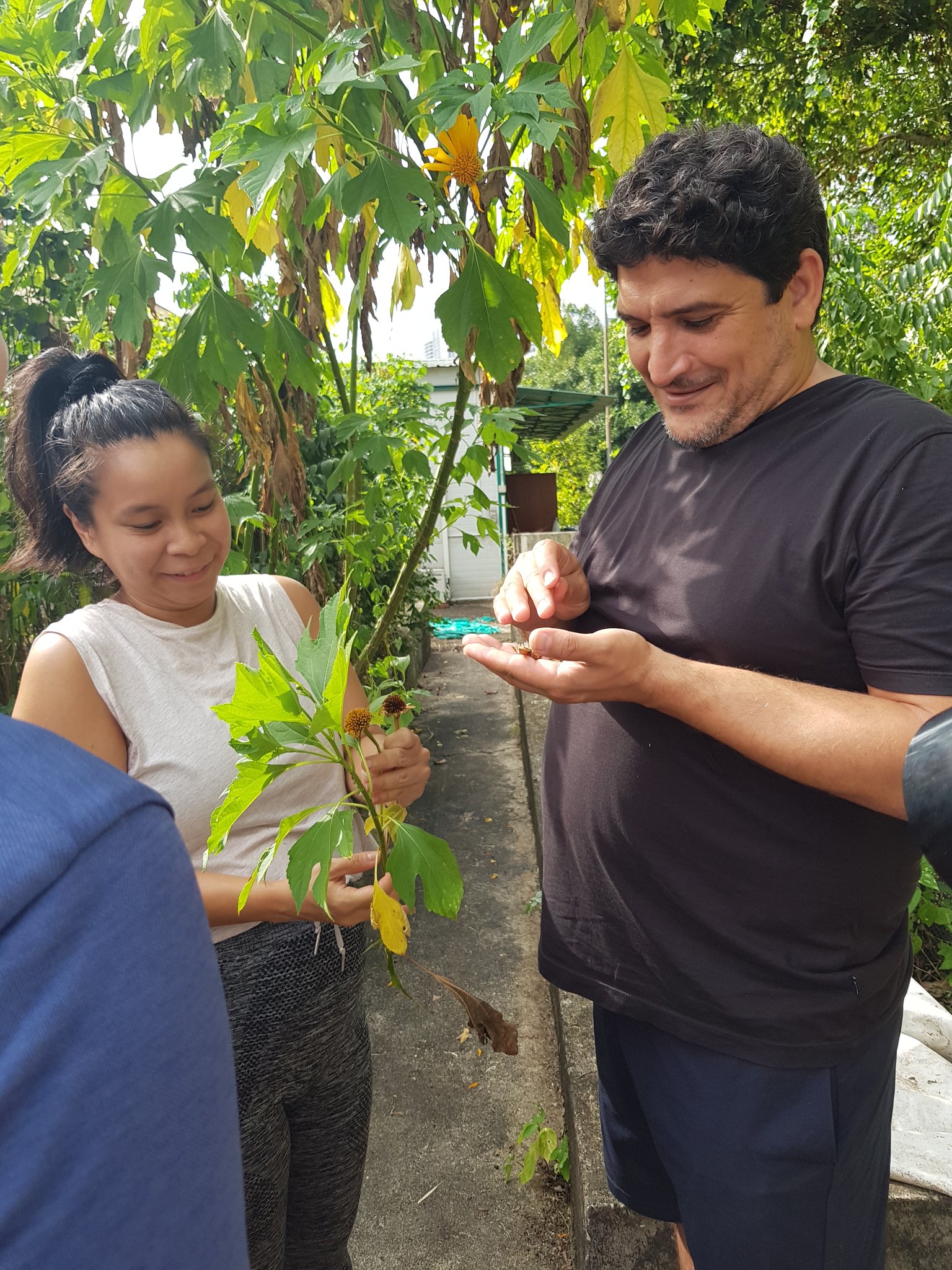 Via Edible Garden City Facebook
Via Edible Garden City Facebook
Working hard for something that is interesting
This is all despite working similar hours and perhaps twice as hard. In fact, Rodriguez actually has to work on weekends more frequently now, although she's quick to clarify that it doesn't happen too often.
But to her, “work does not feel like work”, and weekend work doesn't faze her like it used to. “Just work lor,” she said matter-of-factly.
To relax outside of office hours, Rodriguez also has a variety of go-to activities she enjoys, including cooking and spending time with friends.
She points out in response to my question about what work-life balance means to her:
“To me, work life balance is knowing why you are working so hard, and recognising that it’s worth the development, opportunities or comfort that it gives you and that you can enjoy.
To some this might look like having time after each workday to relax. To others it might be that they can learn a new skill at work.”
It was not an answer I had expected, as I'd thought that she would simply share that life had indeed gotten better post-job-switch, and that she is thus more relaxed now.
Instead, her answer perhaps provides a more realistic perspective on work in Singapore – that work will probably remain stressful for the most part, but genuinely feeling like one is growing through the experience, and having ways to decompress, is what helps take the edge off.
How we can learn to relax and let go
For my relative Bryan, who regularly clocks in 50–60 hours in a work week, work-life balance looks a little more like being able to disconnect from work, and doing the things he enjoys after-hours without being “pinged”.
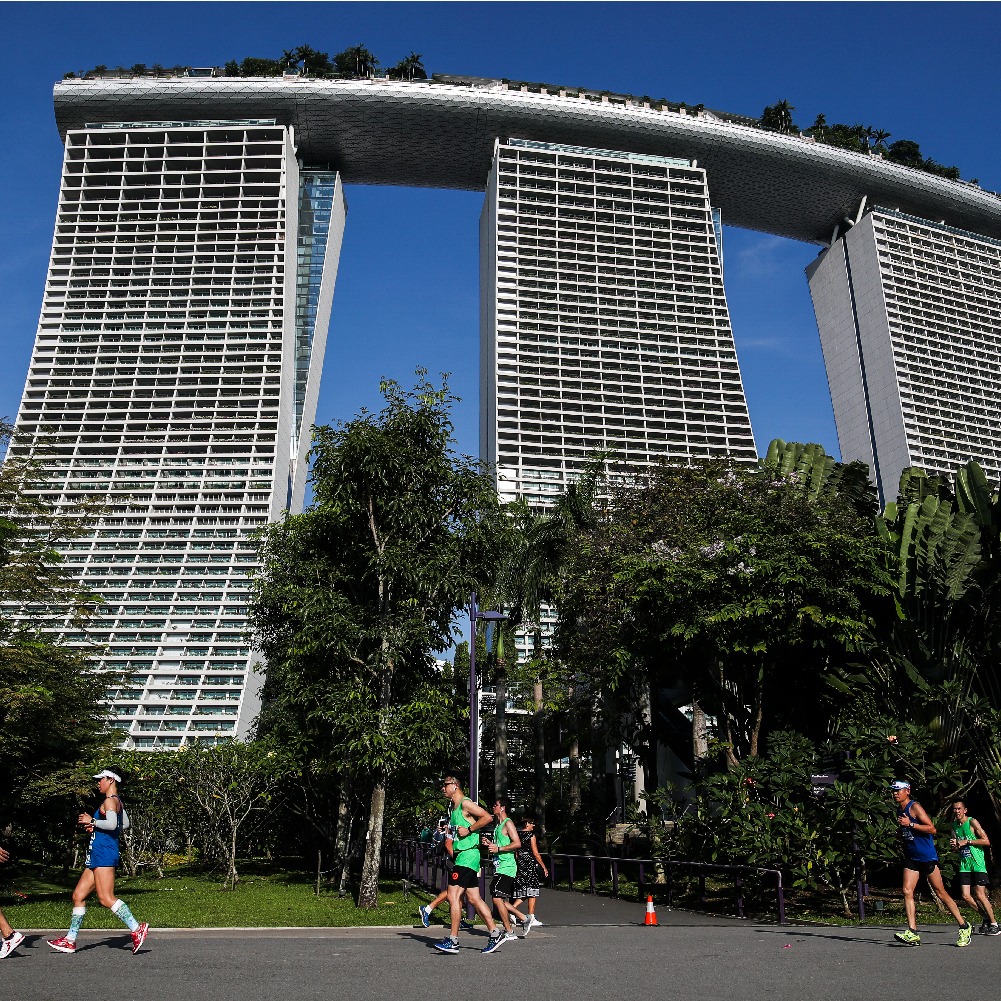 Running is one such hobby. Bryan shares that he enjoys going for marathons in Singapore. Via Standard Chartered Singapore Marathon Facebook
Running is one such hobby. Bryan shares that he enjoys going for marathons in Singapore. Via Standard Chartered Singapore Marathon Facebook
He admits: “Relaxation in Singapore is difficult, with inflation, mortgage loan increase, etc."
"You need money to spend, so you find a job with more money, but that also increases your stress because there’s often higher expectations attached.”
The convenience and ease of communication today, via the Internet, cultivates an expectation of an almost instantaneous reply — something “unheard of in the 1980s-1990s”, adds Bryan.
Bryan thus prefers to block out certain timings in the week for hobbies and exercise as part of his day-to-day.
It’s an efficient way to try to intentionally relax, as Bryan elaborates:
“Perhaps you just go to the gym at lunch, or right before dinner. You just need to make sure you manage your time to do what you like. Apply discipline to your own downtime lor.”
While intentionally planning for downtime might sound like the antithesis of relaxation, it got me reflecting on the ways I relax, and I have to admit that I’ve found intentionally planning for the week ahead useful too.
I try to block out time for my hobbies, like rock climbing or running, at some point in each week.
Other times, I’ve also found that going with the flow and doing nothing (like my colleague here) can be relaxing too.
As a person who didn't use to make time for hobbies, I’ve found that this scheduling of activities that I enjoy doing helps quite a bit in tempering some of the stress and mundanity of day-to-day responsibilities, especially because work to me is just work (FYI boss).
Sharing more about what it means to relax, Lazaroo also explains that relaxation does not have to fit into one narrow category.
To relax can simply mean to give yourself “self-care”:
“Relaxation is part of a larger ability to decompress. It does not just pertain to being able to calm down in an isolated setting.”
So relaxing can look like being intentional with how we plan the week and introducing downtime with family, or setting aside time for activities we enjoy and making sure to follow through on them as part of a regular routine.
Given that working hard is a given in Singapore, Lazaroo also shares that there are other realistic ways to relax, including knowing how to “emotionally detach” from work when needed and understanding one’s limits.
She elaborates on how to establish healthy work boundaries:
“Know when to take a break from work, set realistic goals for the day, and how to walk away from work at the end of the day.
Also, know when you have done your best, and communicate this to your colleagues and supervisors to manage their expectations on your capacity to be available and meet deadlines.”
Lazaroo also urges Singaporeans to learn to understand when one’s body is under stress and to not simply ignore the “warning signs”.
This can look like anything from increased overthinking and difficulty winding down, to “decreased mood” or more commonly, the neglecting of relationships.
Most importantly, what might help some Singaporeans relax, is to relook at how we define our identity and self-worth.
Having spoken to Lazaroo, I found these questions helpful in re-evaluating the perception of needing to be constantly productive at work:
- Do we peg our identity to how productive we are at work, or how much time we are putting into work?
- What does success mean to us?
- And what are our values or the lifestyle choices we want?
“Being honest” with oneself and what is important to us, instead of always comparing with others, could help us in finding a better acceptance of ourselves and what we can do, shares Lazaroo.
Even if expectations are generally high in Singapore, and some jobs might require a consistent level of output, there is still value in practicing "self-compassion and flexibility" with how we see our efforts and productivity at work.
This lays the foundation for the path to relaxation, as we are better able to let go of unnecessary, unwieldy expectations.
As PM Lee said in 2004: “There has to be on-time and off-time.”
At the end of the day, work will continue to keep us busy, and experiencing stress is a by-product of that lifestyle.
But as the Singaporeans I have spoken to have shown, it doesn’t have to lead to “no life”, or mean that the only solution is to migrate out of the country.
There are also alternatives, such as finding a job that makes working hard worth it, or setting a routine that includes downtime and rest for ourselves.
As Lazaroo has shared, it's about learning to establish healthy work boundaries, checking in with our mind and body, as well as having an understanding of our own strengths, weaknesses, and attitudes towards work and life.
Top image derived from photos by Ministry of Information and the Arts Collection, courtesy of National Archives of Singapore and Tim Gouw via Unsplash
If you like what you read, follow us on Facebook, Instagram, Twitter and Telegram to get the latest updates.
